|
I. The collapse of institutional liberalism
For a generation after the fall of the Berlin Wall in 1989, most Americans and Europeans regarded Marxism as an enemy that had been defeated once and for all. But they were wrong. A mere 30 years later, Marxism is back, and making an astonishingly successful bid to seize control of the most important American media companies, universities and schools, major corporations and philanthropic organizations, and even the courts, the government bureaucracy, and some churches. As American cities succumb to rioting, arson, and looting, it appears as though the liberal custodians of many of these institutions—from the New York Times to Princeton University—have despaired of regaining control of them, and are instead adopting a policy of accommodation. That is, they are attempting to appease their Marxist employees by giving in to some of their demands in the hope of not being swept away entirely. We don’t know what will happen for certain. But based on the experience of recent years, we can venture a pretty good guess. Institutional liberalism lacks the resources to contend with this threat. Liberalism is being expelled from its former strongholds, and the hegemony of liberal ideas, as we have known it since the 1960s, will end. Anti-Marxist liberals are about to find themselves in much the same situation that has characterized conservatives, nationalists, and Christians for some time now: They are about to find themselves in the opposition. This means that some brave liberals will soon be waging war on the very institutions they so recently controlled. They will try to build up alternative educational and media platforms in the shadow of the prestigious, wealthy, powerful institutions they have lost. Meanwhile, others will continue to work in the mainstream media, universities, tech companies, philanthropies, and government bureaucracy, learning to keep their liberalism to themselves and to let their colleagues believe that they too are Marxists—just as many conservatives learned long ago how to keep their conservatism to themselves and let their colleagues believe they are liberals. This is the new reality that is emerging. There is blood in the water and the new Marxists will not rest content with their recent victories. In America, they will press their advantage and try to seize the Democratic Party. They will seek to reduce the Republican Party to a weak imitation of their own new ideology, or to ban it outright as a racist organization. And in other democratic countries, they will attempt to imitate their successes in America. No free nation will be spared this trial. So let us not avert our eyes and tell ourselves that this curse isn’t coming for us. Because it is coming for us. In this essay, I would like to offer some initial remarks about the new Marxist victories in America—about what has happened and what’s likely to happen next. To read the rest of this article, click here. Henry David Thoreau once wrote, "There are a thousand hacking at the branches of evil to one who is striking at the root.”
With a hat tip to Walt A. for forwarding, if you want to understand the actual root cause of everything you are seeing in our society, I recommend this short video. Scholar Gary Saul Morson sees disturbing parallels between Russia before the Revolution and contemporary America. By Barton Swaim
June 5, 2020 7:40 pm ET The similarities between this week’s riots and the Los Angeles riots of 1992 are obvious. Both were occasioned by appalling video images, and both divided the nation along partisan and ideological lines. The differences between the two events, however, are more revealing. The violence in 1992 came after a court verdict; the beating and arrest of Rodney King had happened more than a year before. This year’s riots came within days of George Floyd’s killing by Minneapolis officers. The riots of 1992 were mostly confined to poor and working-class areas of Los Angeles. This week saw mayhem all over America, and in Los Angeles, New York and elsewhere the rioters targeted wealthy streets and neighborhoods. But perhaps the most striking difference is the rationalization, and sometimes full-throated defense, of violence from left-wing elites: the glorification of havoc, the vilification of cops and their middle-class admirers, highfalutin defenses of vandalism. The sense of revolution and class warfare was everywhere this week: the cognoscenti and underclass arrayed against the petty bourgeois shop owners; the elite and those they claim to represent against everybody else. Gary Saul Morson says he has no special insight regarding police actions and the death of George Floyd. But he does have a provocative thesis about America’s current political moment: “To me it’s astonishingly like late 19th-, early 20th-century Russia, when basically the entire educated class felt you simply had to be against the regime or some sort of revolutionary.” Mr. Morson, 72, is a professor of Russian literature at Northwestern University and an accomplished interpreter of Fyodor Dostoevsky, Anton Chekhov and Leo Tolstoy. Obviously we haven’t arrived at anything like what Lenin called a “revolutionary situation,” Mr. Morson says, but we have arrived at a situation in which well-intentioned liberal people often can’t bring themselves to say that lawless violence is wrong. In late czarist Russia, some political parties and other groups—the Social Democrats, the anarchists, the Marxists—explicitly endorsed terrorism. “The liberal party—the Constitutional Democrats, they called themselves—did not condone terrorism,” Mr. Morson says. “But they refused to condemn it. And indeed they called for the release from prison of all terrorists, who were pledged to continue terrorism right away. . . . A famous line from one of the liberal leaders put it this way: ‘Condemn terrorism? That would be the moral death of the party.’ ” The lesson seems highly relevant today. “When you’re dragged along into something you don’t really believe yourself—because otherwise you are identified with those evil people, and your primary identity is being a ‘good guy,’ not like those people—you will wind up supporting things you know to be wrong. And unless there is some moral force that will stop it, the slide will accelerate.” Mr. Morson, ensconced in his delightfully untidy and book-laden office in Chicago as we chat on Zoom, concedes that a scholar who spends much of his time thinking and writing about Russia’s revolutionary period will tend to look for parallels between that time and our own. The parallels don’t obtain in every way. But some of them make the analogy worth considering. One is that many of today’s revolutionaries are wildly successful and privileged. Take Colinford Mattis and Urooj Rahman, both New York lawyers in their 30s, who have been criminally charged for attempting to firebomb a police vehicle with a Molotov cocktail. Mr. Mattis was educated at Princeton and New York University, Ms. Rahman at Fordham. Why do people at the top want to destroy the system that enabled them to get there? “No,” Mr. Morson says, “you have it wrong. When you’re such a person, you don’t feel you’re at the top. The people at the top are wealthy businesspeople, and you’re an intellectual. You think that people of ideas should be at the top.” The word “intelligentsia,” he notes, comes from Russian. In the classic period, from about 1860 to the First Russian Revolution in 1905, “the word did not mean everybody who was educated. It meant educated people who identified with one or another of the radical movements. ‘Intelligents’ believed in atheism, revolution and either socialism or anarchism. “The idea was that since they knew the theory, they were morally superior and they should be in charge, and that there was something fundamentally wrong with the world when ‘practical’ people were. So what you take from your education would be the ideology that would justify this kind of activity—justify it because the wrong people have the power, and you should have it. You don’t feel like you’re the establishment.” Is American society, shaped by Protestant Christianity and dominated by a kind of dovish, humanitarian left-liberalism, ever likely to fall into the barbarity of the Russian Revolution? Aren’t we too—I fumble for a word as I formulate the question--soft for that sort of totalizing violence? “I don’t know,” Mr. Morson answers after a long pause. “I don’t know if that means people won’t go as far as they did in Russia, or if it just means there will be less resistance to it.” The danger begins, he thinks, when complex social and political problems can’t be debated any longer. “You get into a revolutionary situation because people can’t hear,” he says. “Can there be a dialogue on important questions, or is there only one thing to say about every question? Are people afraid to say, ‘Well, yes, but it’s not quite as simple as that’? . . . When you can’t do that, you’re heading to a one-party state or a dictatorship of some sort. If one party is always wrong and another always right, why not just have the right one?” Mr. Morson speaks with conviction about the peril of “ideological segregation”: “It was very easy for white people to believe evil things of black people when they never met any. But when you live with somebody, you realize that they’re no worse than you are. . . . We’ve increasingly had ideological segregation on both sides. Each side has caricature views of the other.” The assumption of historical inevitability may play a part here. You hear it in our political language: A favored policy is “an idea whose time has come,” a disfavored one is “on the wrong side of history.” This sort of teleological thinking—history has a direction, and that direction is identical with our political views—is fervently, if unconsciously, embraced by highly educated people today. It was also “one of the central arguments of late-19th-century Russian thought,” Mr. Morson says. “Does history have a direction? And is later necessarily better? The greatest thinkers—Tolstoy, Alexander Herzen—answered no, later is not always better. They believed that sort of thinking was an importation of religious providentialism into history—the determinism of Hegel and Marx. The difficulty of this form of thinking is that it paralyzes you from acting. Between the wars, it was common for people to say: ‘Yes, you may like liberal democracy, but that’s of the past. We fascists are of the future.’ Or ‘We communists are of the future.’ People would resign themselves to the inevitable and conclude, ‘Well I can’t fight the future, I can’t resist the fascists or the communists.’ ” I suggest that the American left is very fond of this teleological language—Barack Obama spoke in his first inaugural address of the “worn-out dogmas that for far too long have strangled our politics.” But Mr. Morson reminds me that Ronald Reagan used similar rhetoric. “Part of being a revolutionary is knowing that you don’t have to acquiesce to the tired, old ideas of the past,” he said in a 1985 speech. Another marker of the Russian intelligentsia was the sheer contempt its members had for the peasants and workers they claimed to represent. “How many workers, how many peasants, were even in the Bolshevik Party? Very few. . . . Lenin’s whole idea was that ‘the working class, left to itself, will never develop more than a trade-union consciousness.’ That’s his famous phrase. They had to be led by the intelligentsia and completely disciplined. No matter what you say, they will do it, no matter how violent. They don’t have to understand the reasons, they’ll just do it. Because they’re the agents of history, as Marx described them. . . . That implies a contempt for the working class and a greater contempt for the peasantry.” The supposition that America is moving toward anarchy or revolution because we’ve had a week of riots—or three years of bad faith and acrimony, or three decades of polarization—still seems hard to accept. Mr. Morson is careful not to predict the course of events. He uses the phrase “insofar as the Russian example applies” more than once. But, he says, “we have a major depression, we have terrible fear from the illness, and now we have mass riots in the street, which our leaders do not seem to know how to handle. That’s a very rapid slide from only a year ago. And there’s no reason to think it will slow down. The slide could well continue.” And history can unfold in unpredictable ways. Who would have guessed 20 years ago, he asks, that the First Amendment’s free-speech guarantee would become passé on the liberal left? “I used to get a laugh from students by quoting a Soviet citizen I talked to once. He said to me, ‘Of course we have freedom of speech. We just don’t allow people to lie.’ That used to get a laugh! They don’t laugh anymore.” We are delighted to send you the 14th edition of our annual In Gold We Trust report, titled “The Dawning of a Golden Decade”.
Gold is on everyone's lips again; we are now in a new phase of the bull market. The question that now occupies every gold-interested person is, how does the Covid-19 pandemic affect the price of gold? We are taking a deep dive into this question, as well as a whole spectrum of other topics. Among them, the following topics are covered in the In Gold We Trust report 2020:
English version: Extended Version - English (356 pages) Compact Version - English (93 pages) Our In Gold We Trust report Chinese version will be published in Autumn 2020. We would like to invite you to join us on our annual journey and hope you enjoy reading our 14th In Gold We Trust report as much as we enjoyed writing it. Have a great day and please do not hesitate to contact us if you have any questions! Yours truly, Ronald-Peter Stoeferle & Mark J. Valek Incrementum AG Im alten Riet 102 FL-9494 Schaan www.incrementum.li - www.ingoldwetrust.report This is a brutal assessment by Lee Smith, a senior investigator of the House Intelligence Oversight Committee, of the motives of President Obama to smear and destroy LTG (R) Mike Flynn. KWM
"Michael Flynn posed a threat to the former president’s legacy and was made to pay for it Barack Obama warned his successor against hiring Michael Flynn. It was Nov. 10, 2016, just two days after Donald Trump upset Hillary Clinton to become the 45th president of the United States. Trump told aide Hope Hicks that he was bewildered by the president’s warning. Of all the important things Obama could have discussed with him, the outgoing commander in chief wanted to talk about Michael Flynn. The question of why Obama was so focused on Flynn is especially revealing now. The Department of Justice recently filed to withdraw charges against the retired three-star general for making false statements to the FBI in a Jan. 24, 2017, interview regarding a phone call with a Russian diplomat. The circumstances surrounding the call and subsequent FBI interview have given rise to a vast conspiracy theory that was weaponized to imprison a decorated war hero and a strategic thinker whose battlefield innovations saved countless American lives. There is no evidence that Flynn “colluded” with Russia, and the evidence that Flynn did not make false statements to the FBI has been buried by the bureau, including current Director Christopher Wray. So if the Obama administration wasn’t alarmed by Flynn’s nonexistent ties to Russia, why was he Obama’s No. 1 target? Why were officials from the previous administration intercepting his phone calls with the Russian ambassador? The answer is that Obama saw Flynn as a signal threat to his legacy, which was rooted in his July 2015 nuclear agreement with Iran—the Joint Comprehensive Plan of Action (JCPOA). Flynn had said long before he signed on with the Trump campaign that it was a catastrophe to realign American interests with those of a terror state. And now that the candidate he’d advised was the new president-elect, Flynn was in a position to help undo the deal. To stop Flynn, the outgoing White House ran the same offense it used to sell the Iran deal—they smeared Flynn through the press as an agent of a foreign power, spied on him, and leaked classified intercepts of his conversations to reliable echo chamber allies.” Click here to continue. Sydney Powell is a national treasure and has exposed egregious government misconduct in her brilliant defense of LTG (R) Mike Flynn.
See her open memo in response to former President Obama’s recent comments on the case. From the Introduction by Jeff Deist
"The Great Crash of 2020 was not caused by a virus. It was precipitated by the virus, and made worse by the crazed decisions of governments around the world to shut down business and travel. But it was caused by economic fragility. The supposed greatest economy in US history actually was a walking sick man, made comfortable with painkillers, and looking far better than he felt—yet ultimately fragile and infirm. The coronavirus pandemic simply exposed the underlying sickness of the US economy. If anything, the crash was overdue. Too much debt, too much malinvestment, and too little honest pricing of assets and interest rates made America uniquely vulnerable to economic contagion. Most of this vulnerability can be laid at the feet of central bankers at the Federal Reserve, and we will pay a terrible price for it in the coming years. This is an uncomfortable truth, one that central bankers desperately hope to obscure while the media and public remain fixated on the virus. But we should not let them get away with it, because (at least when it comes to legacy media) the Fed’s gross malfeasance is perhaps the biggest untold story of our lifetimes.” Download your free copy by clicking here. I was going to title this essay “Hydroxychloroquine: does it cure CONS” — with the joke being CONS as an abbreviation for Credulous Official Narrative Syndrome. But people dying and losing their livelihoods worldwide for no good reason is not a joke. Coronagate is the political con job that promises to eclipse all others, even against stiff competition like Spygate.
Here’s the bottom line: Dr Fauci and his institutional sponsors have known since at least 2005 that chloroquine — and its milder derivative hydroxychloroquine (HCQ) — inhibit coronaviruses like SARS from replicating in the body. They have withheld this important information from the public and failed to act on it when forming policy. Instead these besuited criminals have pushed experimental and expensive drugs, whilst having huge financial conflicts of interest. This means that the present lockdown and the immense disruption and harm it is causing is for no real benefit. We could be offering cheap and effective prophylactic and therapeutic treatments for COVID-19, targeted at the vulnerable (like healthcare workers, elderly, those with comorbidities). Indeed, several countries are taking this course now with proven success. Major Western nations are committing economic and social suicide to sustain an enormous lie about the integrity of those we trusted to protect us. This is a crime against humanity, and encompasses many in the pharma business, the corporate media, and in government. The size of the scandal cannot be overstated. Those responsible deserve the most severe punishment for ruining civil society. Continue here. A Russian Woman Working as a College Professor in the US Writes About the Sovietization of Amerika5/3/2020
With a hat tip to Charles Hugh Smith for highlighting this haunting essay by Rod Dreher. KWM
"Clarissa is a college professor who emigrated to the US from Russia as a young woman, a few years after the fall of the Soviet Union. She is yet another ex-Soviet bloc person who is extremely anxious about the emergence of soft totalitarianism here. Of course she can’t use her real name, because she fears professional retaliation. It should tell us something that not a single academic from a former communist country that I interviewed for this book was willing to speak using their own name — this, in the Land of the Free. Why not? Because they were afraid of facing professional consequences for speaking out against identity politics and the “social justice” regime. Below, some quotes from our interview: Click here to continue. |
AuthorKevin Massengill is an entrepreneur, investor, and award winning Fortune 500 senior executive with a track record of massive business growth. Archives
September 2020
Categories |


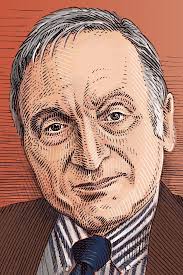
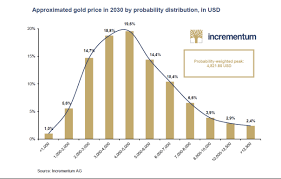


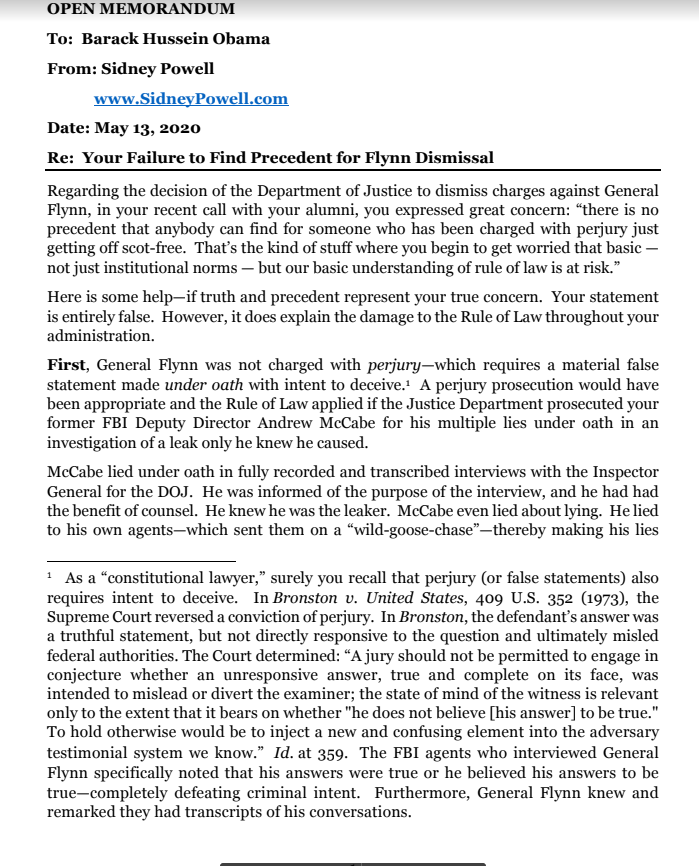
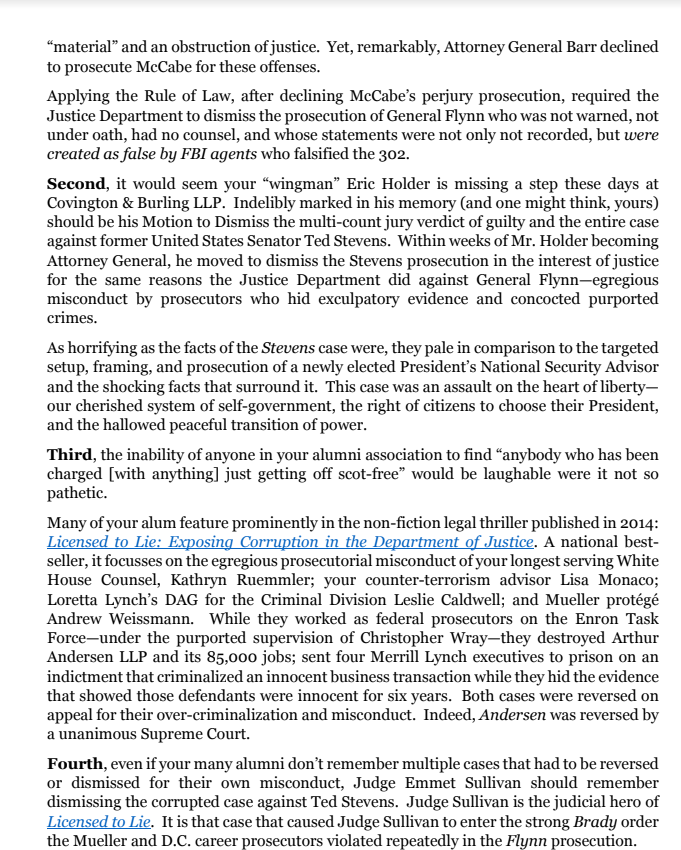
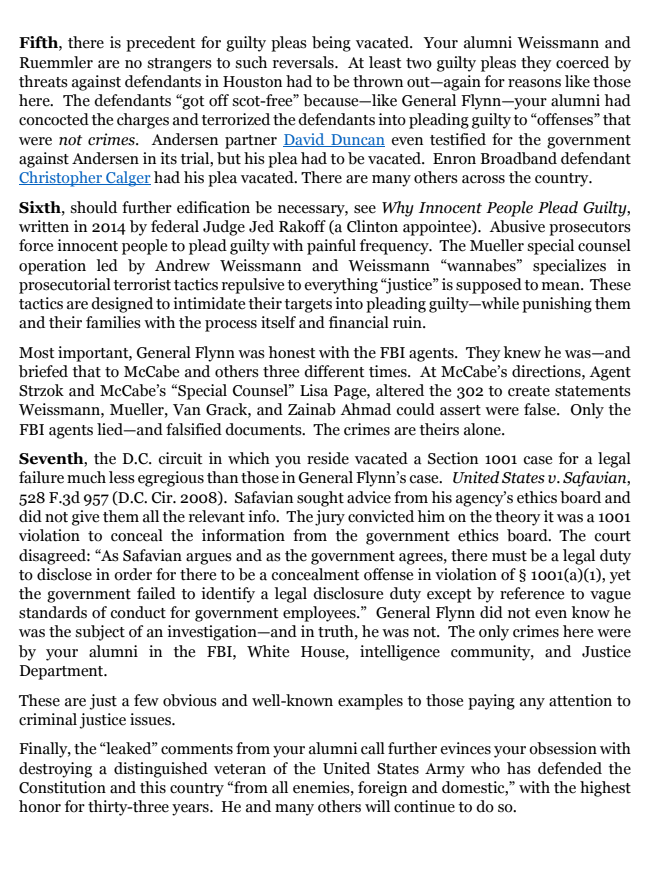
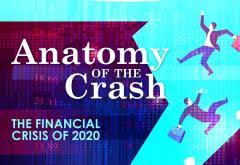


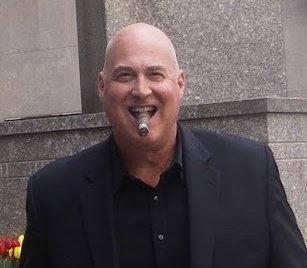

 RSS Feed
RSS Feed
